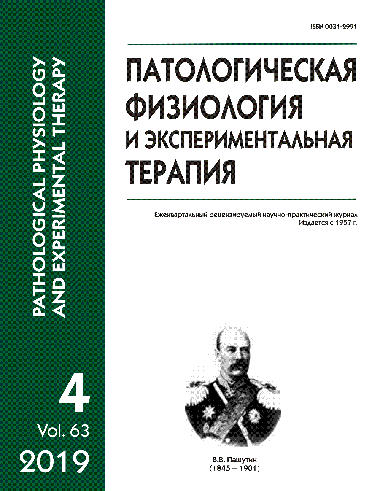The effect of a synbiotic on blood biochemistry and concentrations of leptin, ghrelin, and their receptors in prepubertal rats consuming a diet containing excessive fat
Abstract
The aim of the study was to evaluate a possibility of using synbiotics for pathogenetic correction of metabolic disorders induced by excessive consumption of fat and to measure levels of leptin, ghrelin, and their receptors. Methods. Experiments were conducted on the second generation of prepubertal Wistar rats consuming a diet with excessive fat (51% of diet). A synbiotic was included into the diet of a rat group aged 5 weeks. At age of 7 weeks, animals of the experimental and control groups were decapitated and samples were taken for bacteriological, biochemical, and enzyme immunoassay studies. Results. Excessive fat consumption resulted in growth of conditionally pathogenic microbiota, decreased levels of lacto- and bifidobacteria in the large intestine and feces, and development of dyslipidemia. Also, serum level of leptin was increased by 49.9%, ghrelin receptor density in adipose tissue was increased by 28.2%, and leptin receptors density in adipose tissue was increased twofold. The synbiotic treatment resulted in beneficial changes of the microbiota and lipid profile; serum level of leptin and ghrelin receptors density in adipose tissue decreased. Conclusion: The synbiotic drug normalized the gastrointestinal microbiota, lipid profile, and peptide hormones responsible for feelings of hunger and satiety.






